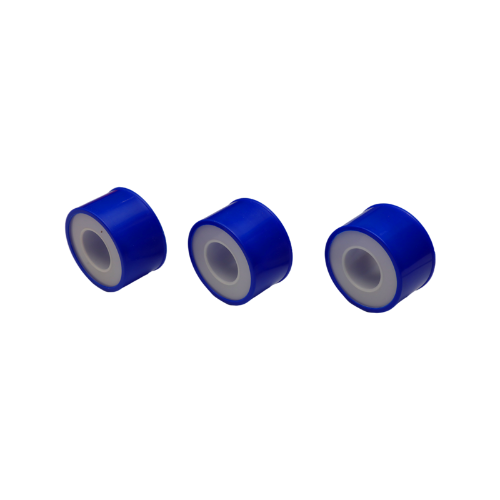PTFE (Polytetrafluoroethylene) Teflon tape is a versatile and widely used sealing material that offers several advantages in various applications. Here are some advantages of PTFE Teflon tape:
Excellent Temperature Resistance: PTFE Teflon tape can withstand high temperatures, typically ranging from -200°C to 260°C (-328°F to 500°F). This makes it suitable for sealing applications where extreme temperatures are involved, such as in plumbing, automotive, or industrial settings.
Chemical Resistance: PTFE Teflon tape has exceptional resistance to chemicals, including acids, bases, solvents, and corrosive substances. It remains unaffected by most chemicals, making it a reliable choice for sealing connections in chemical processing, plumbing systems, and other environments where chemical exposure is a concern.
Low Friction Coefficient: PTFE Teflon tape has a low coefficient of friction, which means it provides a smooth and non-stick surface. This property reduces friction and facilitates easy assembly and disassembly of threaded connections, preventing galling or seizing.
Effective Sealing: PTFE Teflon tape is highly effective in sealing threaded connections, such as pipe fittings or joints. It forms a tight and secure seal that helps prevent leaks, even under high pressure conditions.
Electrical Insulation: PTFE Teflon tape is an excellent electrical insulator. It has high dielectric strength and low electrical conductivity, making it suitable for applications where electrical insulation is required, such as in wiring and cable connections.
Versatility: PTFE Teflon tape is available in various widths, thicknesses, and densities, allowing for flexibility in different applications. It can be easily wrapped around threaded connections, ensuring a tight seal.
Precautions for Using PTFE Teflon Tape:
While using PTFE Teflon tape, it's important to keep the following precautions in mind:
Correct Application: Ensure that the PTFE Teflon tape is applied correctly on the threaded connection. Start at the end of the thread and wrap it in the direction of the threads. Use the appropriate number of wraps to achieve a secure seal but avoid excessive overlapping.
Compatibility: Verify the compatibility of the PTFE Teflon tape with the specific application and substances involved. While it is highly chemically resistant, some strong oxidizing agents or reactive substances may affect the tape's performance.
Proper Thickness: Use the appropriate thickness of PTFE Teflon tape for the intended application. Thicker tapes may be required for larger threads or higher pressure connections, while thinner tapes may suffice for smaller threads.
Avoid Over-Tightening: Do not over-tighten the threaded connections when using PTFE Teflon tape. Over-tightening can cause the tape to deform or extrude, compromising the seal and potentially leading to leaks.
Replace as Needed: Monitor the condition of the PTFE Teflon tape over time. If the tape becomes damaged, frayed, or compressed, it may need to be replaced to maintain an effective seal.
By following these precautions, you can ensure the proper use and maximize the advantages of PTFE Teflon tape in your sealing applications.




 English
English Espa?ol
Espa?ol
















